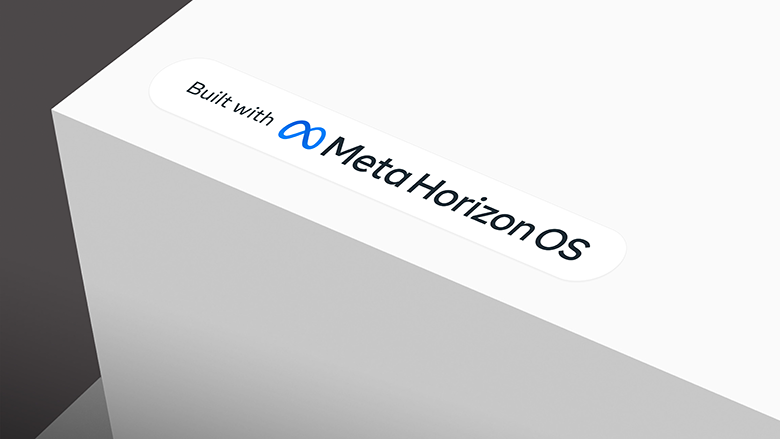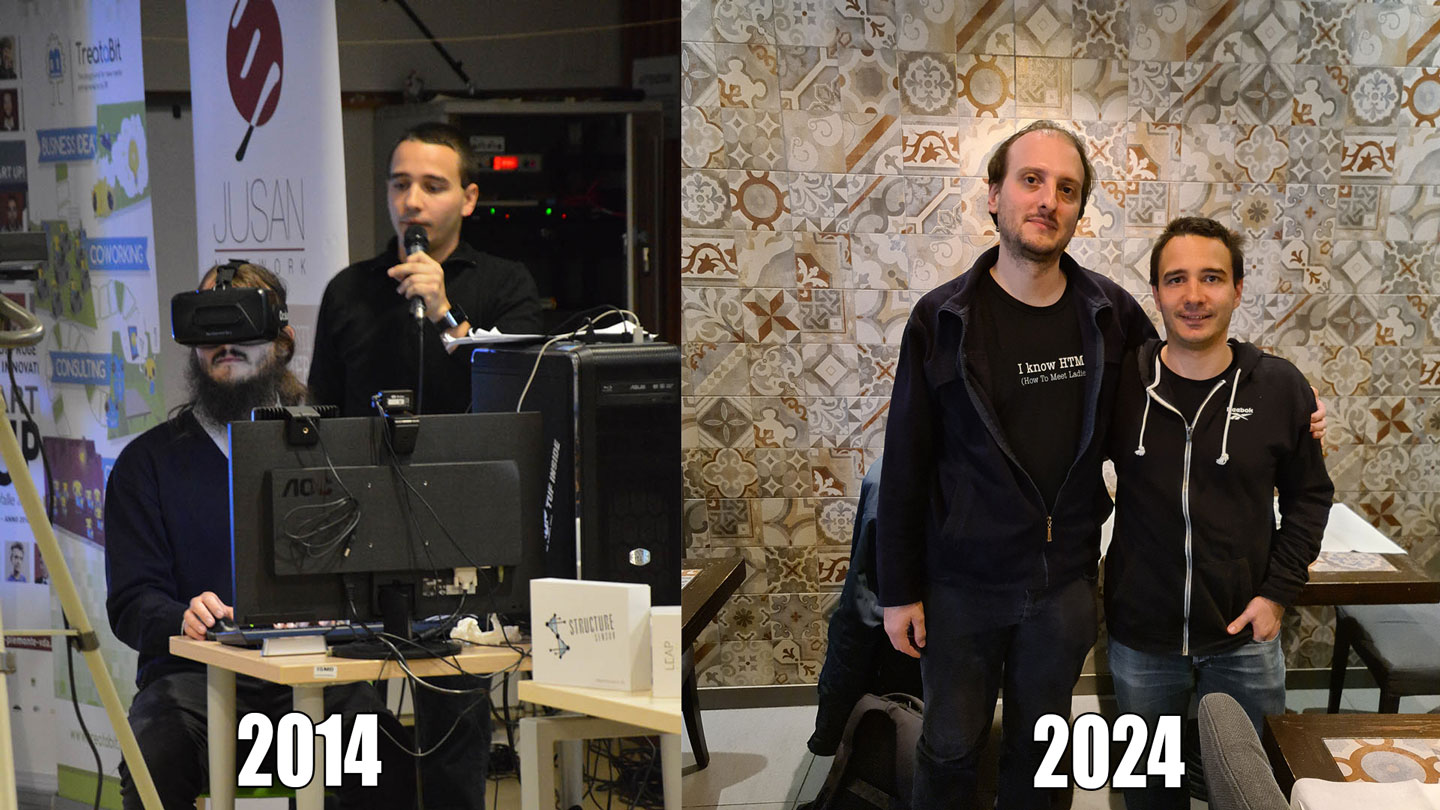Analysis: Meta opens up its walled garden to become the Android of XR
Today a (positive) earthquake hit the virtual reality ecosystem: Meta has just opened up its walled garden, as a strategic move to expand its business in the virtual reality market. It has just authorized other VR OEMs to use its Quest operating system and blurred the lines between the Meta Quest Store and App Lab. Let me tell you everything about this massive news and also analyze with you why this has been a very good idea.
Meta Horizon OS on multiple headsets
Meta has renamed the operating system of the Quest as Meta Horizon OS, its store as Meta Horizon Store, and the Quest companion app as Meta Horizon. The reason why the name “Quest” has disappeared from everywhere is because Meta has decided to open up its ecosystem to other headsets from other vendors. Yes, you’ve read it well. Other headset manufacturers will be able to build their headsets and implement the whole Meta ecosystem, including the operating system and the app store, into them.
Two OEMs are already onboard: Lenovo and ASUS are already working on devices whose software will be built on top of the Meta Horizon ecosystem. Unluckily we don’t have many details about them: we only know that ASUS is working on “a performance gaming headset” while Lenovo is on a “mixed reality devices for productivity, learning, and entertainment”. Meta has also announced a partnership with Microsoft Xbox, but just to build a “limited-edition Meta Quest, inspired by Xbox”. It was already a shock seeing Meta opening its walled garden, having another shock by seeing an Xbox headset would have been too much for my heart…

According to the video where Zuck announced this piece of news it seems that Meta is interested in having in its ecosystem different headsets built for different use cases: more lightweight for working, with higher resolution for watching movies, and so on.
All vendors may make a device compatible with Meta Horizon OS, provided that they run on top of a Qualcomm Snapdragon chipset because these chips are “tightly integrated with Meta’s software and hardware stacks”. It is not clear which will be the next OEMs integrating the Horizon platform, but probably at this stage, Meta is not opening the platform to literally everyone, but it is picking up itself some specific vendors to partner with.
Zuck’s genius move before Google I/O
I was kinda shocked reading this piece of news, but I was also quite happy because I’m all in for open platforms, and seeing finally Meta breaking the walls of its walled garden is for me a good thing. Zuck always said that Meta is the “open ecosystem” that fights against Apple’s closed ecosystem, but until today there was nothing open at all. Today’s pieces of news (this one and the other one I will mention later) move Meta exactly in that direction, making Meta Horizon become the Android of XR.
I don’t think that this move has been made to do something for the good of the world: in my opinion, it is a genius business move from Zuck. I gotta hand it to this guy, this time he made the right decision. Until today, I believed that Meta was in a very difficult position this year, because on one side the launch of the Apple Vision Pro put Meta’s dominant position in the market at risk; and on the other side, Google re-entering the field with an Android XR operating system and Samsung as its partner, was a real threat, as well. Meta risked being squeezed again between the two giants Apple and Google, ready to bring their domination directly from the phones to the XR headsets. Google in particular, if it was able to impose Android XR as the standard operating system for XR headsets, together with a Play Store for XR, would have put Meta’s OS survival at risk.

Google in a few days would have most probably announced at Google I/O its operating system for XR, nicknamed “Android XR” (we don’t know the official name), to kickstart this strategy. But Meta has now played the Uno reverse card: it has played in anticipation and announced its own operating system for XR (Android-based, oh the irony) that multiple vendors can implement. And with the operating system comes also Meta’s store. It is playing the same Android-for-XR strategy against the same company that invented Android.
I have no idea what Google will announce at Google I/O, but after all these years in the ecosystem, Meta has for sure at this moment more features in its operating system (casting, full body tracking, spatial anchors, room meshing, etc…) and many more games in its store. Meta has a fantastic content catalog for Quest and now this can be enjoyed on all headsets that want to implement its operating system. Google won’t be able to offer the same rich set of content at launch… at maximum, it can do like Apple and offer the 2D apps of the Play Store in XR, but no one is going to be excited about that (we are seeing the frustration of Vision Pro users in having just 2D apps). And Meta is also offering “the metaverse” to its vendors: all the social layers built on the Meta Horizon OS (accounts, friends, avatars, etc…) will work across all headsets. This is very important: users will be able to carry on their own XR identity across all headsets of the Meta ecosystem.

So the question for OEMs is if they want to bet on a new OS by Google or if they want to implement a well-known XR operating system with a shitload of good content. I think Google has to give some good checks to OEMs to use its operating system at this moment. I’m not saying that Google can not reduce the gap with Meta over the years (it is Google after all, it has plenty of cash and an enormous ecosystem), I’m just saying that it will take a lot of time and that today it is not in a favorable position.
Even worse for Google is the fact that Qualcomm is one of its key partners, but given that Meta is distributing its operating system only to headsets based on Qualcomm Snapdragon, it is evident that the partnership between Meta and Qualcomm is very strong, too. The fact that all headsets should use the same hardware platform (Qualcomm chips) also helps in reducing the fragmentation of the Meta Horizon ecosystem, making all devices have the same functionalities. Google has huge problems for the fact that Android runs on many different devices with different chipsets and capabilities, but if Meta ensures that all the headsets using its OS will be similar, it can update its operating system in a very consistent way.
I think that it is Google now the company in a difficult position: the first headset based on its Android XR, the Samsung headset, has been postponed because it was not good enough to compete with the Vision Pro, and now that it is launching its operating system, it discovers that it is probably not good enough to compete against Meta. Meta has even invited Google to port its Google Play store to Meta Horizon OS…
The improved content distribution

You may wonder if Meta couldn’t lose money by opening up its software ecosystem to other competing headsets. If someone buys the Lenovo XR headset, he is not going to buy the Quest, for instance. But the reality is that Meta has always sold headsets under cost or at cost, so it’s not really earning money from hardware. Software is where it earns the real money: it’s the console business model, where the sold games are going to earn that money that the company is investing in hardware. Now, if Meta’s store is opened up to other headsets, Meta will earn real money from all the headsets that are implementing its store. It’s the same good deal that Google does by distributing its Play Store on all Android phones.
The only unknown is if hardware manufacturers will be happy about it. The only other example we had in XR of a software platform working on all headsets has been SteamVR. And it didn’t end very well: the first headset was made by HTC and Valve, and as soon as HTC realized that much of the VR money was on software, it launched its own store: Viveport. So, will these OEMs using Meta Horizon OS or Android XR be satisfied with the money from the hardware sales or will they try to also launch their software stores? Only time will tell…
Meta blurs the lines between App Lab and the Meta Horizon Store
The second piece of news, which makes me incredibly happy, is that finally, Meta has started breaking also the wall that separates App Lab from the official Meta Quest (ehm, Horizon) Store.
Until now, Meta Quest had its curated store, where only the super-polished or super-successful applications could be published, and then the App Lab store, where all the other indie experiences went. The problem was that apps on App Lab were like unlisted videos on Youtube, that is, impossible to find, and for a developer managing to be promoted from App Lab to the official Store has always been super-complicated (and obscure). This led to the frustration of many content creators, myself included.
Today, Meta is taking a step in the right direction to help indies, making App Lab content appear in a dedicated tab on the Meta Horizon Store, finally making App Lab content discoverable. Indies will most probably see increased downloads of their titles because finally they can be found on the device using the search function. (I hope to see a spike in downloads for our fitness game HitMotion: Reloaded!)

What makes me excited is the official wording for this news: “We’re beginning the process of removing the barriers”. “Beginning” is the key word here: it means that eventually this barrier will be totally removed. In fact, Upload VR in the article talking about this news, mentioned an eventual “second phase” where the Meta Horizon Store will be fully open to all apps, as Steam is today. This would be fantastic.
The right time for opening up
It’s so good that Meta finally realized the importance of indie content: many of the most successful VR games, like Gorilla Tag or Beat Saber were indie titles, so it’s good that now Meta gives more visibility to indie games.
The eventual opening of the store comes also at the right time: Meta’s store curation was made so that to give Quest’s first-time users a good experience and increase the retention and reputation of Quest. But now Quest is already the most successful headset around and has a big catalog of good games the users can start with. So now that the foundations are stable, Meta can open up its ecosystem and even let its store become a bit more “dirty”. This has also the secondary advantage that Meta Horizon can mention a bigger number of apps when drawing a comparison with the other platforms.
Meta opens also to mobile developers
Meta knows that both Apple and Google can also boast compatibility with millions of mobile applications, so it has made a last move today: opening up to ports of existing 2D mobile applications. This is what you can read in the blog post:
We’re also developing a new spatial app framework that helps mobile developers create mixed reality experiences. Developers will be able to use the tools they’re already familiar with to bring their mobile apps to Meta Horizon OS or to create entirely new mixed reality apps. Developers can apply for access here.
While I don’t think this will bring millions of Android app developers to Meta Horizon, it will still serve to increase the number of available apps. And especially opens up Meta to partner with the studios behind popular 2D apps (e.g. Netflix) to port them to the Horizon ecosystem.
Good job, Meta

My job as a blogger is trying to stay objective: I have to praise the positive things that companies do and criticize the bad ones. I’ve been very critical in the past about Meta’s walled garden, but today I have to praise Meta (and the Zuck) for this move of opening up its whole ecosystem. It is a good move for us developers, and a good move also for Meta itself, which so can fight better its battle against Google.
In the end, this also confirms why competition is good for our ecosystem: I don’t think Meta would have opened up if Apple and Google didn’t enter the field. It’s good to see that these XR wars are bringing lots of advantages to us users and are also speeding up the development of the technology. Welcome to this new cycle of XR.
[PS If you want, you can read Meta’s official announcement at this link: https://www.meta.com/en-gb/blog/quest/meta-horizon-os-open-hardware-ecosystem-asus-republic-gamers-lenovo-xbox/]
(Header image by Meta)
Disclaimer: this blog contains advertisement and affiliate links to sustain itself. If you click on an affiliate link, I'll be very happy because I'll earn a small commission on your purchase. You can find my boring full disclosure here.



